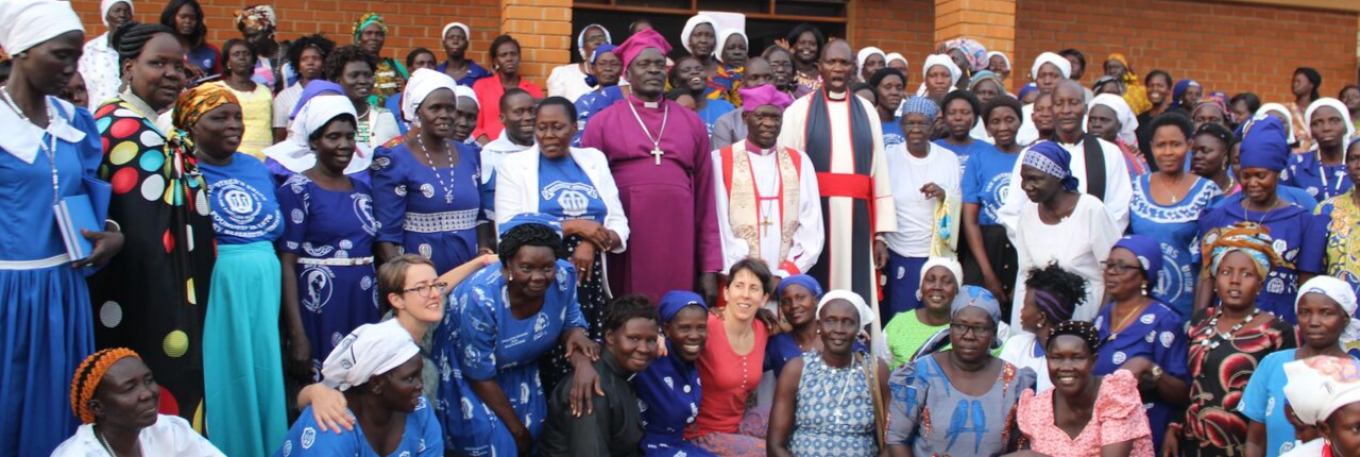You are here

Equipping Mothers’ Union South Sudan to Build Peaceful and Resilient Communities
South Sudan the world’s newest country is currently positioned 187 out of 189 in UNDP’s Human Development Index. The conflicts of December 2013 and July 2016 have greatly exacerbated the development gains since its July 2011 independence. It is estimated that over 400,000 have died since the 2013 conflict with over 4.3 million displaced internally or in neighbouring countries.
The Revitalized Agreement on the Resolution of the Conflict in South Sudan (R-ARCISS), signed by the government, the opposition and civil society on September 12, 2018 in Addis Ababa has been seen as a renewed opportunity to ensure peace prevails.
https://www.worldbank.org/en/country/southsudan/overview
In February 2019, MU South Sudan held a two week retreat and workshop for over 160 Mothers’ Union Leaders, Bishops Wives and MU Community Coordinators from the 54 Dioceses of South Sudan, and was supported by a grant of £50,000 by the Flowers Foundation, which was matched by internal Mothers’ Union resources. It was designed to follow on from the work undertaken by Mrs Caroline Welby with the wives of Archbishops and Bishops around healing from trauma and peace and reconciliation, as part of the Women on the Frontline programme. The objectives: a) to facilitate healing amongst the participants, to enable them to better carry out their ministry; b) to create reconciliation internally, given that delegates came from tribes which have been in conflict with one another; c) to enable delegates to prepare plans for improving the impact of their community work, in the context of helping to build a peaceful, sustainable future; d) to equip delegates with the tools to facilitate work in their communities.
The workshop extended over 13 days, and was structured throughout to build relationships and facilitate reconciliation. The primary tools used were those of the MULOA programme (Mothers’ Union Listens, Observes and Acts), which Mothers’ Union has been conducting across the world. Time for personal reflection and healing was built into the workshop; acknowledging the trauma that the nation has experienced over the last five+ years. Additional activities to MULOA were designed to help respond to both personal and collective trauma, and to build trust and relationships between participants from different Provinces and different ethnic groups. An interesting theme of self-examination (both as individuals and as MU) emerged: the need for internal healing and forgiveness to bring greater unity amongst members, enabling them to better serve others.
Laying down their titles, participatory activities and bibles studies created an atmosphere of unity and equality. Family Groups, designed to break down barriers between group members allowed as much relationship building and sharing of different experiences and perspectives as possible.
“I thought I was on my own with these burdens. When sharing I realised we are together”
Celebrating what we bring, hope for healing, taking risks, being salt and light and recognising the most vulnerable were systematic themes that enabled the participants to dream and together develop areas of work. Reflecting on their local resources and overcoming dependency further added to the participants’ learning alongside celebrating their stories of change that was fed into their action plans going forward.
“We need to empower, train and educate people, to mobilise them to identify their own resources”
Since the meeting, reports from the different MU groups across the various internal provinces have been received, sharing how the participants have returned to their dioceses and communities and put into action all they have learnt in Arua.
“Our country has been bleeding for so many years. We have been looking for help but there has been no way out… Through faith, South Sudan can be healed”
How some groups have been studying the story of Esther and learning the dangers of early marriage. An issue that before the Arua meeting the MU hadn’t collectively thought of as something they should be actively advocating against.
“We go home to strengthen the Mothers’ Union”
